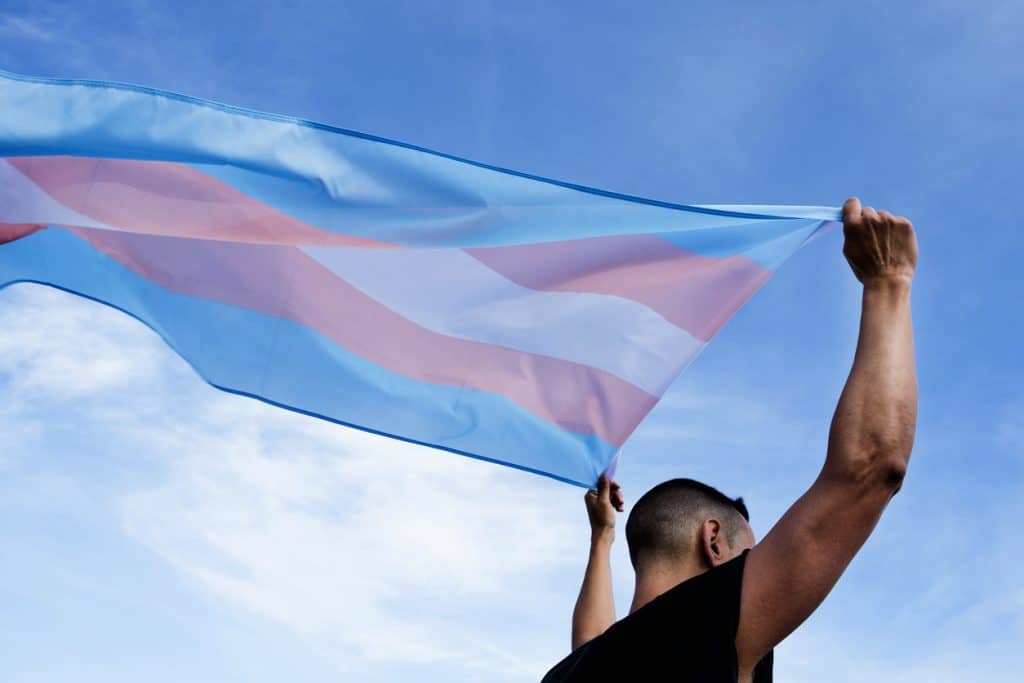
By Lauren Foster
7 September 2022
Welcome to the first of “Curly Questions” a monthly column written by experts dealing with tricky conversations that touch on faith, in a compassionate, practical and biblical way.
My friend just came out as transgender, how should I respond to this?
There is no doubt that being the person someone trusts to share this with is a huge privilege. However, it can also be pretty confronting for everyone.
It is easy to overthink and worry about saying something unhelpful or harmful. So, let us explore how to support someone when they come out as transgender.
In these conversations, it is good to hold onto two things: love for the person in front of you and curiosity about their experience. It can be easy to fall into a reaction rather than a response. Take a deep breath, suspend your judgment and be intentionally curious about the person’s story. As people, there are universal experiences that we all share which means people who are gender queer are not that different to you. LGBTQIA+ people will also have differences in their experience to you which means there is great importance in listening and in not making assumptions.
Is there a curly question you’d like us to address? You can let us know by filling in this form.
Firstly, know your role. The best thing that you can do is to know your role and act inside of it. You are not their counsellor, you are their confidant.
Take the time to actively listen to your friend. Take the pressure off yourself and know that the most important thing you need to do is listen. It is important to remember this: when a person shares something big, they want to be seen, known, and heard-they want to know that their story is worthy of your time. Thank them for trusting you and sharing with you. You can ask questions like:
- How can I support you with this?
- What has this experience been like for you?
- What are some helpful next steps for you?
- Do you have people supporting you? Can I help you get support?
- If you get stuck, you can always say “tell me more”.
Ask them what language and pronouns they would like you to use. This is a big way that we can honour and love the person in front of us. Biblical scholar Preston Sprinkle speaks of pronoun hospitality which is not about our personal view about gender identity but about respecting the person in front of us. Calling a person by their preferred pronouns can be considered an act of Christ-like love regardless of what you think about the LGBTQIA+ movement. If you make a mistake, that’s ok, just apologise and move on.
Read more: Love your neighbour (terms and conditions apply): On tolerance
Be aware of your reactions and your language. Your friend will likely be on high alert for your reaction. Notice if you are feeling heightened and breathe through it to focus on them.
Take care of yourself: hearing someone’s story will likely impact you and it is important that you debrief with someone safe if you need to. Speak to the person about this as it’s an easy way to honour them. Know your limits and do not engage in anything that you are not trained to do.
Discipleship is all about being willing to sit with people in the messy parts of life. Preston Sprinkle’s words hit the core of this issue when he says: “we need less outrage and more outrageous love. Our truth will not be heard until our grace is felt, because the greatest apologetic for truth is love.”
Lauren Foster is a Wellbeing Coordinator in a Christian secondary school and Co-Director of the Big Kids’ Table ministry.
Is there a curly question you’d like us to address? You can let us know by filling in this form.
For more faith news, follow The Melbourne Anglican on Facebook, Twitter, or subscribe to our weekly emails.







